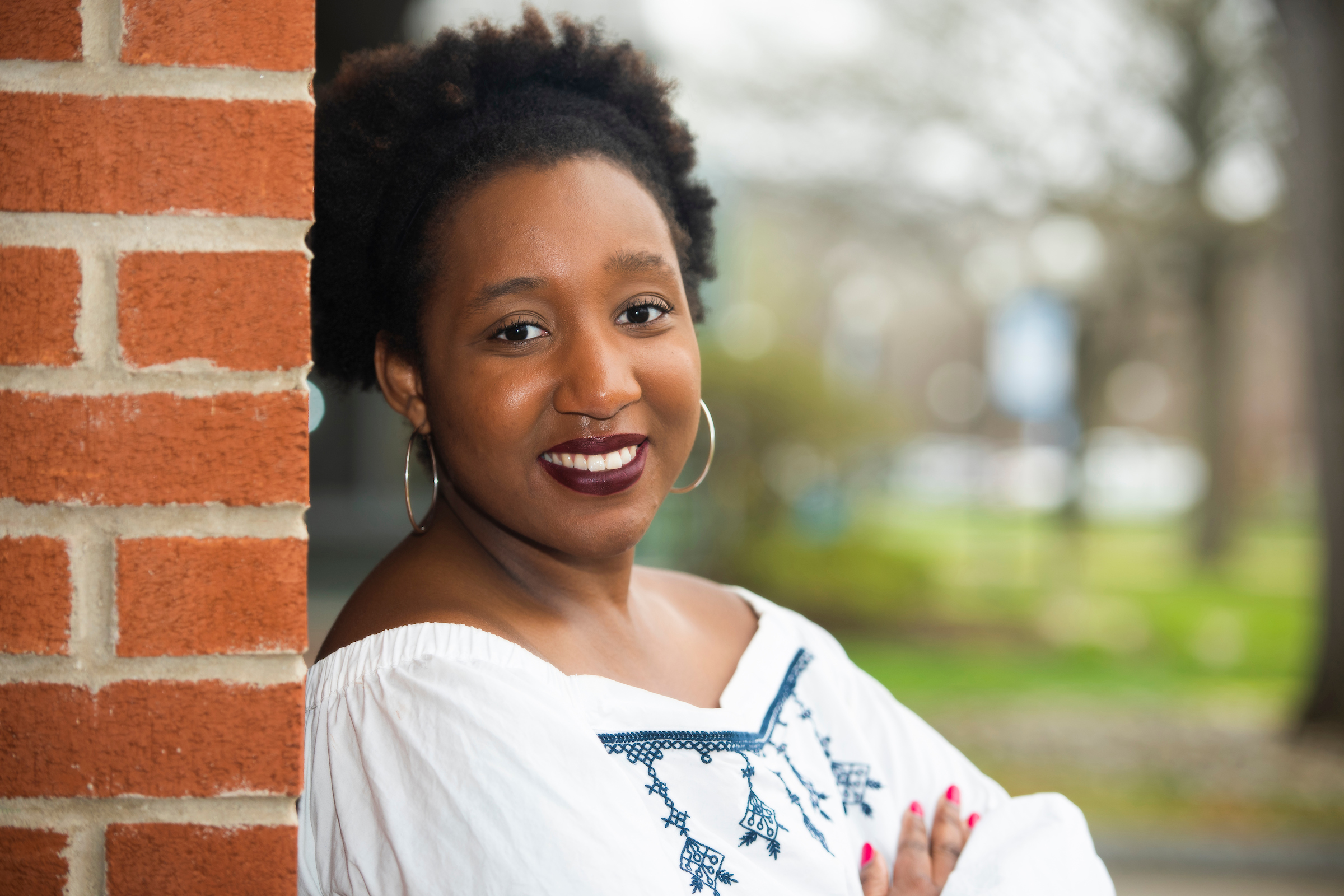To meet Daisha Brabham is to be immediately swept up in her infectious enthusiasm for history. Brabham graduated from Southern in 2017 with a degree in history, and her passion for her discipline, along with her scholarship and creative activity, are taking her far. She has just been awarded a prestigious U.S. Fulbright – U.K. Partnership Award that will allow her to receive full funding to complete a Master’s of Public History degree at Royal Holloway University of London during the 2019-2020 academic year.
Brabham currently teaches U.S. history and an advanced placement course in human geography at the Engineering and Science University Magnet School, based at the University of New Haven. Previously, she taught for a year at Wilbur Cross High School in New Haven.
Her Fulbright project will involve a play she wrote for an independent study in the Women’s Studies Program in her senior year. During her senior spring and the summer following, the play — Homegoing: A Herstory of the Black Woman — was performed on campus, but Brabham has reworked the script and says it is now “an entirely new play.” Homegoing reflects the history of Black womanhood in America, beginning with the Yoruba tradition of West Africa and going on to travel with a number of different African American women, such as Venus Hottentot, Billie Holiday, and Mammie.
Brabham says that originally, the play “was like a physical manifestation of my search for myself.” During her junior year, she studied at the University of Plymouth, U.K., where she became interested in researching the lives of women in Elizabethan England. But then, she says, she realized she was studying women who had already been studied extensively and she was “leaving out women who looked like me.”
She changed her focus to African American women and decided to write Homegoing, but as the play has evolved, it has come to be more about women in the African diaspora around the world. “I am drawing all of these narratives together about what it means to be black,” she says. She sees the play as a celebration of resistance and as bringing to the public “those stories we don’t talk about.”
The play features 10 actresses, the majority of whom are high school students from the Greater New Haven area. Brabham herself is also in the play. A teacher to her core, Brabham wants her students to learn the history of the women they are portraying in the play.
Being a teacher can be confining, she says, due to curriculum requirements, adding that she works in a school where more than half of the students are African American, and she “really wants African American people to know about their own history.” In the play, she uses traditional African modes of communication, such as song, dance, and movement.
Homegoing is now Brabham’s bridge to her future, as she’ll be incorporating voices from black Britain in the play as part of her Fulbright project. As a student at Royal Holloway, she will have access to the National Archives, the London Records Office, the Black Cultural Archives. She also plans to interview some of the women she meets.
“I’m a public historian,” Brabham says, explaining that public history is about bringing historical knowledge to the public in engaging ways, such as museums, exhibitions, documentaries, and theater. This means of presenting history is important, she says, because it makes history accessible. “It lets people learn about themselves,” she says.
Tricia Lin, who served as the faculty adviser/sponsor for Brabham’s senior independent study, wrote in her Fulbright recommendation for Brabham that her project “will be of tremendous contribution to the literature/scholarship on Black womanhood . . . The complex untold stories of Black women is . . . Daisha’s intellectual project—which is truly her calling.”
Darcy Kern, assistant professor of history, who was Brabham’s adviser at Southern, wrote in her letter of support for Brabham’s Fulbright application that Brabham was “the most enthusiastic student I have had at SCSU” and that Brabham “offers a unique, refreshing perspective on women’s history, in part because of her own background.”
Assistant Director of the Office of International Education Michael Schindel, the Fulbright Program Advisor, says that, “Those who have worked with Daisha know that she is incredibly persistent. She is receiving this award after her third attempt at applying for a Fulbright grant. There is only one slot for the U.K. Partnership Award to Royal Holloway University and it is highly competitive.”
Brabham credits the people she worked with at Southern over the years with helping her realize her goals. “The History Department really changed not only my view of the world but also of myself,” she says. “I received such loving, caring feedback, advice on life, etc. – they gave me great advice not only on how to be a historian but also on how to be a good human.”
And the Women’s Studies Program “taught me how to be a good person and not to give up and be persistent and keep going. The confidence they had in me helped me keep going,” she says.
Homegoing: A Herstory of the Black Woman will be presented twice on May 5, 2019: at 12 p.m. and at 6 p.m., in the Garner Recital Hall (Engleman C112). Tickets are $10 with an SCSU I.D. and $15 for general public. Purchase tickets online.


